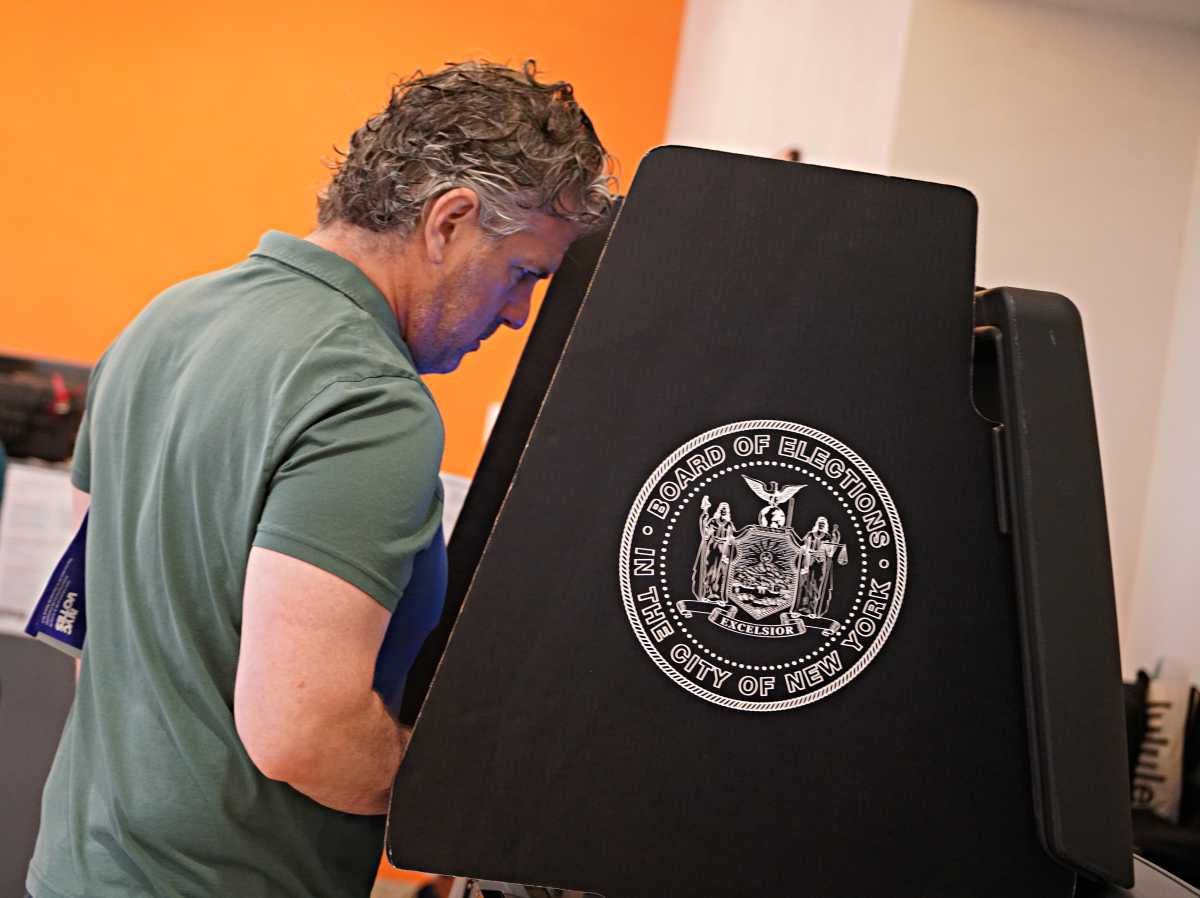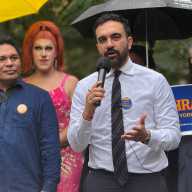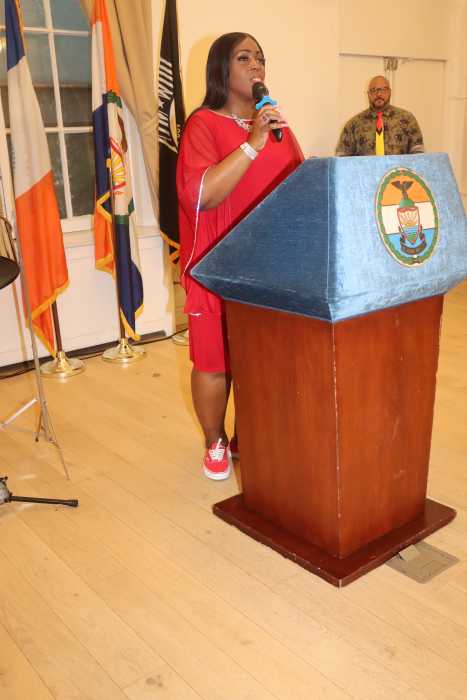Charles Kaiser was surely on the side of the angels when he told The New York Times that a HIV-positive person has no “right” to “unprotected intercourse.” The author and journalist is clearly speaking for the community when he tries to stop the spread of HIV caused by positive men not using condoms for anal sex.
Gay leaders are right to remind us that that we have a moral responsibility toward each other. There have been a series of public meetings where hundreds of gay men have expressed their anxiety about the combination of crystal meth use and bare-back sex. Clearly, the time has come for embarking on a new campaign of prevention meant to modify high-risk sex practices.
The gay and lesbian community took a proactive stand against AIDS when it first appeared and killed thousands of gay men. ACT UP not only demanded that the government intervene to stop the epidemic, it also insisted that gay men use condoms. That plea should be renewed.
Walter Armstrong, editor-in-chief of POZ magazine, has observed that the gay liberation movement typically “doesn’t get mobilized out of love.” Fear and a visceral rejection of policies and groups predicated on the notion that the lesbian, gay, bisexual and transgender community has no right to exist have motivated us to action.
Clearly, Kaiser and Larry Kramer understand that motivation. Kramer calls bare-backing “murder” and Kaiser compared HIV-positive men having unprotected intercourse “to putting a bullet through another person’s head.” These comparisons provoke fear and anger. Strong language used to achieve a positive effect is a normal part of political discourse.
However, we shouldn’t let the rhetoric interfere with a proper understanding that could bring about long term results.
Fear has a limited impact on behavior. The current complacency of many gay men toward the spread of HIV is caused by a decline in fear. When AIDS meant imminent death, the change in gay men’s sexual behavior was dramatic, but as medicine transformed AIDS into a chronic disease, it is hardly surprising that the impact of fear as a positive motivator has declined.
The role of fear in any new prevention campaign will be hotly debated. There is a growing suspicion that the super-virus announced by the city’s health commissioner, Thomas L. Frieden, may not be as disastrous as it first seemed. This of course would be good news, but we shouldn’t let that undermine the necessity for a new campaign of prevention.
We need to remind ourselves of certain realities that impede both positive and negative men from taking precautions. The reality is that infected men have little to gain by exposing their status, and when they do it is an act of altruism, which should be appreciated. In a way, this is a cynical outlook on human behavior, but an utterly realistic one. In addition, positive men are perhaps dealing with the resentment that another positive person has infected them. This inescapable fact may make it harder for them to do the right thing and be candid about their status.
An added complication in the effort to stop the spread of HIV is the number of negative people, often young and attractive, who say they don’t care and enthusiastically participate in bare-backing. It’s one thing to say that you should inform your partner, but what seems simple becomes complicated when the partner says, “Let’s do it anyway.”
These obstacles can be overcome, but they require conversation, skill training and safe places where risk-takers can sort out their feelings and thoughts. My personal approach is to focus on the one activity where I think the risk is unambiguous and the ethical choice reasonably clear—an HIV-positive man should not engage in unprotected anal intercourse with a negative man. I also believe the gay community can discuss its desires frankly and develop new understandings about how have sex with each other.
Scolding is not sufficient, but we need to face the fact the threat of criminal penalties is in the air. The gay community must respond in a creative and positive way.
Gay men will not alter their sexual practices out of fear, unless we first frankly admit that controlling AIDS requires an exercise of altruism and ethical responsibility. Lately, our society has lost its faith in these virtues and has substituted the stick of criminal penalties for a reliance on education and behavioral change. The triumph of free market ideology also minimizes the roles of altruism and ethical responsibility.
But the evidence is clear that societies can control AIDS and let sexually active men enjoy themselves. Gay Australians, who are in many ways culturally similar to Americans, have an HIV infection rate substantially lower than in the United States. One of the Australian officials who helped create the safe-sex policy argues, “Unlike the U.S., Australia opted to control HIV through frank sex education, widespread distribution of syringes and provision of free, anonymous, and therefore virtually universal, HIV/AIDS testing.”
Bill Bowtell, a former national president of the Australian Federation of AIDS Organizations, stated in the Sydney Morning Herald that “the U.S. has an infection rate ten times that of Australia’s. In 2003, the rate of HIV prevalence in Australia was 69 per 100,000, compared with 600 per 100,000 in the U.S. The incidence of AIDS was 1.5 per 100,000 in Australia against 15 per 100,000 in the U.S.”
Government policy matters but before we go down the path of passing punitive laws and turning the sex police on gay men, we need to examine what efforts at persuasion and behavioral change are most efficacious in fighting the spread of HIV.
gaycitynews.com


































